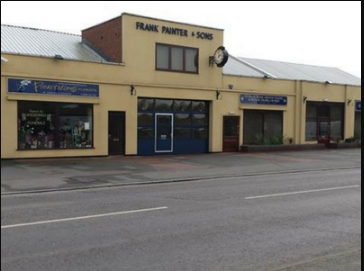The plumbing industry offers a wide range of job opportunities for those with the right skills and training. The industry is also facing some challenges, such as an ageing workforce and a shortage of skilled workers.
The plumbing industry offers a wide range of job opportunities. Plumbers can find work in a variety of settings, such as residential, commercial, and industrial. There is a growing demand for plumbers as the population continues to grow and more buildings are constructed.
The industry is also facing some challenges. An ageing workforce and a shortage of skilled workers are creating difficulties for the plumbing industry. These challenges need to be addressed in order to ensure that the plumbing industry can continue to provide quality jobs.
1. Career opportunities in the plumbing industry.
2. The challenges of the plumbing industry.
3. The different types of plumbing jobs.
4. The skills needed to be a plumbing professional.
5. The importance of continuing education in the plumbing industry.
1. Career opportunities in the plumbing industry.
The plumbing industry offers a wide variety of career opportunities for those with the right skills and training. From working as a plumber in a residential or commercial setting to owning your own plumbing business, there is ample opportunity for career growth in this field.
Those who are interested in a career in plumbing can find many programs at both the vocational and technical schools level which will provide the necessary training. There are also a number of apprenticeship programs which can lead to journeyman status and beyond. Once someone has completed their training, there are many great career opportunities available to them.
Plumbers are in high demand in both the check these plumbing jobs out commercial construction industries. Licensed plumbers can find work installing and repairing plumbing systems in new construction projects as well as working on older systems that need to be updated or repaired. In addition to construction work, plumbers may also find employment in the maintenance department of a residential or commercial property. Here they would be responsible for responding to plumbing repair calls and keeping the plumbing systems in good working order.
Those who are interested in starting their own business can find many opportunities in the plumbing industry. Plumbing businesses can range from small, one-person operations to large companies with a fleet of trucks and dozens of employees. owning your own business offers the opportunity to be your own boss, set your own hours, and make an unlimited income. Those who are interested in starting their own business should have a strong business acumen and be able to handle the day-to-day operations of a business, including marketing, bookkeeping, and customer service.
2. The challenges of the plumbing industry.
The plumbing industry faces several challenges that may limit opportunities for those seeking employment in the field. One such challenge is the need for skilled labor. Many plumbing jobs require experience and training that can be difficult to obtain. Without the necessary skills, workers may find it difficult to secure employment in the industry.
Another challenge facing the plumbing industry is a shortage of qualified workers. This shortage can result in competition for jobs and may make it difficult for those without experience to find work. The shortage of qualified workers may also lead to higher wages, which can price out some workers who are not able to find employment that pays a livable wage.
Additionally, the plumbing industry is subject to seasonal fluctuations, which can make it difficult for workers to find consistent work. Many plumbing jobs are only available during certain seasons, which can make it difficult for workers to earn a steady income. The seasonality of the industry can also make it difficult for businesses to find the workers they need when they need them, which can lead to delays in projects.
Despite the challenges, the plumbing industry offers many opportunities for those who are willing to work hard and learn the necessary skills. With training and experience, workers can find employment in a variety of settings, from residential to commercial to industrial. Plumbing jobs can be both physically and mentally demanding, but they can also be rewarding. workers who are able to overcome the challenges of the industry can find a stable career in a field that is essential to our everyday lives.
3. The different types of plumbing jobs.
There are a number of different types of plumbing jobs available, each with its own set of challenges and opportunities. Here are three of the most common types of plumbing jobs:
1. Residential plumbing jobs. These typically involve working on plumbing systems in private homes. There can be a lot of variety in this type of work, as each home will have its own unique needs. residential plumbers must be able to troubleshoot and solve problems quickly and efficiently.
2. Commercial plumbing jobs. These tend to be larger and more complex than residential jobs, involving plumbing systems for businesses and other public buildings. Commercial plumbers must be able to handle a wider range of issues, and often work on complex projects with multiple teams.
3. Industrial plumbing jobs. These plumbing jobs typically involve working on very large, complex systems, often in challenging environments. Industrial plumbers must be able to troubleshoot and solve problems quickly and efficiently. They also need to be able to work safely in potentially hazardous environments.
Each of these three types of plumbing jobs has its own unique challenges and opportunities. As a plumber, it is important to assess your skills and experience to see which type of job would be the best fit for you.
4. The skills needed to be a plumbing professional.
There are many skills that are needed to be a plumbing professional. Some of these skills include: being able to read and interpret blueprints and other drawings, being able to safely and effectively use tools, being able to install and repair plumbing systems, and being able to communicate well with customers and other professionals.
Each of these skills is important in its own right, and the ability to do all of them is what separates the best plumbing professionals from the rest. Being able to read and interpret blueprints is critical, as it allows plumbers to understand the layout of a plumbing system and visualize how it all fits together. Being able to use tools safely and effectively is also important, as it allows plumbers to work quickly and efficiently while minimizing the risk of injury.
Installing and repairing plumbing systems is the bread and butter of the plumbing profession, and being able to do it well is essential. Plumbers who are able to install and repair systems quickly and efficiently, without compromising on quality, are in high demand. Finally, being able to communicate well with customers and other professionals is key to being a successful plumbing professional. Plumbers who can effectively communicate with customers to understand their needs and explain the work that needs to be done are highly valued.
The best plumbing professionals are those who have mastered all of these skills. Those who are able to read and interpret blueprints, use tools safely and effectively, install and repair plumbing systems, and communicate well with customers and other professionals are in high demand and can command high salaries. If you have the skills and the drive to be a plumbing professional, the sky is the limit.
5. The importance of continuing education in the plumbing industry.
In today’s competitive job market, it is more important than ever for plumbers to continue their education. By pursuing continued education, plumbers can keep up with the latest technology and trends, learn new methods and techniques, and improve their skills.
Continued education can also help plumbers advance their careers. By taking courses and earning certifications, plumbers can demonstrate their commitment to their profession and their commitment to being the best at their trade. Additionally, many employers prefer to hire plumbers with continuing education credits, as it shows that they are willing to invest in their own professional development.
There are many ways for plumbers to continue their education, including taking courses at a trade school or community college, taking online courses, or attending seminars and conferences. No matter what method of continued education plumbers choose, it is important that they make the effort to stay up-to-date on the latest advancements in their field.
By continuing their education, plumbers can keep their skills sharp, improve their career prospects, and show their dedication to their profession.
Overall, the plumbing industry provides good opportunities for those who are willing to put in the work. The one downside is that the industry can be challenging to get into if you don’t have the right connections. However, once you’re in, there is a lot of room for career growth and advancement. So if you’re looking for a stable and rewarding career, plumbing is a great choice.


